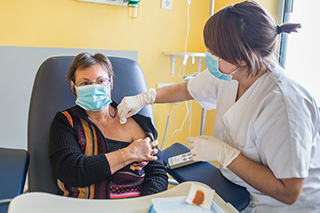Personalized Risk Assessment: Predicting Disease Risk with Lifestyle Data
In today’s fast-paced world, health has become a personal project. With technology at our fingertips, we’re no longer passive recipients of health advice but active participants in managing our wellness. One promising development is the ability to predict disease risk using personalized risk assessment, which leverage lifestyle data to provide insights tailored specifically to you. This post will guide you through how personalized risk assessment work, their benefits, and how they are transforming the healthcare landscape.
Understanding Personalized Risk Assessment
Imagine having a clear picture of your health risks, not based on generic statistics but on your unique lifestyle data. That’s the core of personalized risk assessment. By analyzing factors such as diet, exercise, sleep patterns, and even stress levels, healthcare professionals can offer predictions about your future health risks. This data-driven approach replaces one-size-fits-all recommendations with insights that are as unique as your fingerprint.
The Role of Lifestyle Data
Lifestyle data is pivotal in personalized risk assessment. It includes every choice we make that affects our health—what we eat, how much we exercise, and even our mental well-being. Technology plays a key role here, with devices like fitness trackers providing real-time data. This continuous stream of information helps build a comprehensive picture of your habits, allowing for accurate health predictions.
How Personalized Risk Assessments Improve Outcomes
Predicting disease risk isn’t just about numbers; it’s about outcomes. By identifying risks early, you can take proactive steps to mitigate them. For instance, if your data suggests a high risk of heart disease, you could adjust your diet or increase physical activity. This proactive approach not only prevents diseases but also enhances overall quality of life.
The Benefits of Tailored Health Insights
Personalized risk assessments offer numerous benefits. They empower individuals by providing knowledge that is specific to their circumstances. This empowerment leads to increased motivation to make healthier choices. Additionally, these insights foster a deeper understanding of how lifestyle choices impact health, making it easier to set realistic goals and achieve them.
The Intersection of Technology and Healthcare
Technology has revolutionized healthcare, and personalized risk assessment is a prime example. Advanced algorithms analyze vast amounts of data to predict disease risk accurately. This technology-driven approach is not just futuristic; it’s practical. It allows for timely interventions, reducing the likelihood of severe health issues down the road.
Privacy Concerns and Data Security
With great power comes great responsibility, especially when it comes to handling sensitive data. Personalized risk assessments require access to personal lifestyle data, raising concerns about privacy and security. It’s essential for healthcare providers to implement robust security measures to protect this information. Transparency about how data is used and shared is also crucial in building trust.
Incorporating Mental Health into Risk Assessments
Mental health is an integral part of overall well-being and should be included in risk assessments. Factors such as stress levels and emotional resilience play a significant role in physical health. The best EHR for mental health can seamlessly integrate this information, providing a holistic view of an individual’s health risks.
The Role of Healthcare Providers
Healthcare providers play a crucial role in personalized risk assessments. They interpret data and provide actionable advice to patients. This collaboration between patient and provider fosters a partnership aimed at achieving optimal health outcomes. It’s a shift from reactive care to proactive prevention, marking a significant transformation in healthcare delivery.
Challenges in Implementing Personalized Health Assessments
Despite their potential, implementing personalized risk assessments is not without challenges. The accuracy of predictions depends heavily on the quality of data collected. Inconsistencies or gaps in data can lead to less reliable results. Additionally, there is a need for healthcare systems to adapt to this new model of care, which requires investment in technology and training for providers.
The Future of Healthcare
The future of healthcare is personalized. As technology continues to advance, predicting disease risk will become even more precise and accessible. This shift will empower more people to take charge of their health, leading to a healthier society overall. With continued innovation, personalized risk assessments have the potential to revolutionize how we approach health and wellness.
Taking the First Step Toward Personalized Health
If you’re intrigued by the potential of personalized risk assessments, there’s no better time to start exploring what they can do for you. Begin by gathering data from your lifestyle habits, and consider discussing the results with your healthcare provider. By taking small, informed steps today, you can pave the way for a healthier tomorrow.







